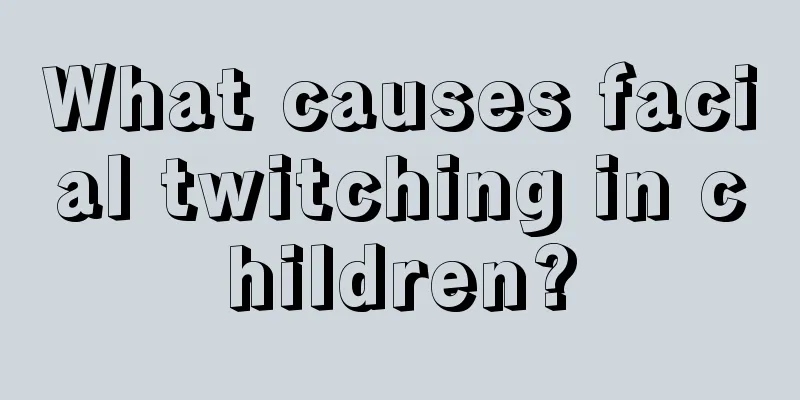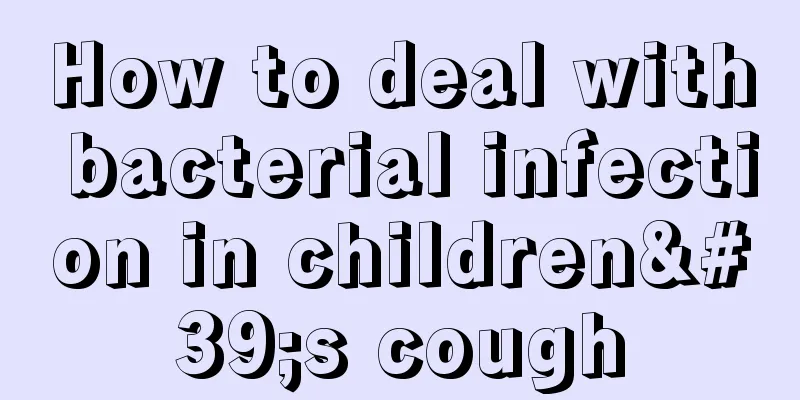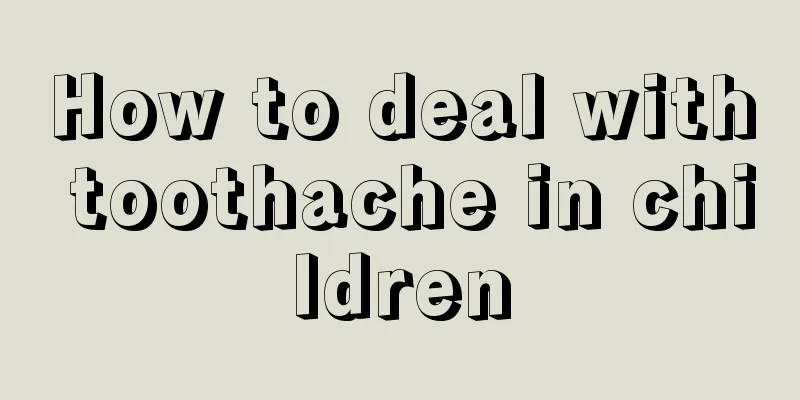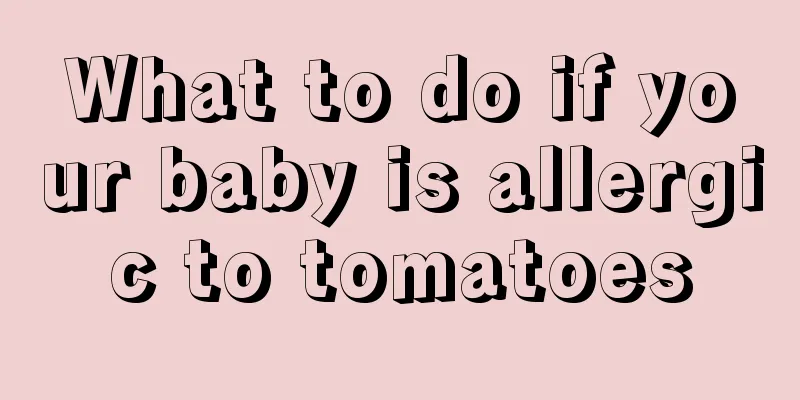What causes facial twitching in children?

|
Generally, only patients with certain diseases will experience body or facial convulsions, so many parents are very scared when they find their children have facial convulsions, fearing that their children have some disease. At this time, parents should first understand the cause of their child's facial twitching. They can use the elimination method to determine the cause of their child's facial twitching, and then go to the hospital for treatment in time. Tics usually start from the face, gradually develop to the head, neck, and shoulder muscles, and then spread to the trunk and upper and lower limbs. Tics can manifest in various forms, such as blinking, twitching the nose, pouting, making faces, nodding, shrugging, etc., or they can manifest as vocal tics, such as sniffing the nose, clearing the throat, coughing, screaming, barking, obscene language, etc. The frequency and intensity of tics may fluctuate during the course of the disease. New tics may replace old ones, or new tics may appear on top of existing ones. These tic symptoms may be aggravated by tension, anxiety, anger, fright, excitement, fatigue, being reminded, concomitant infection, or playing computer or watching TV for too long. They may also be alleviated or even disappear if the child concentrates on other things, or is relaxed and emotionally stable. In addition, many children with tic disorders may also experience local discomfort in the body, such as pressure, itching, pain, heat, cold, etc., before motor tics or vocal tics occur. The causes of tics in children are currently considered to be related to the pregnant mother's history of high fever, difficult labor during pregnancy, or the newborn's history of asphyxia or hyperbilirubinemia after birth, some infections in the child himself, such as upper respiratory tract infection, tonsillitis, rhinitis, various types of encephalitis, viral infection, etc., or in the future upbringing process, the child is exposed to certain mental stimulation, such as parents are too strict, family relationships are not harmonious, children are neglected, etc., which can also induce the occurrence of this disease. Although children's tic disorders do not cause obvious organ damage, they can have certain adverse effects on children's future learning and life: frequent involuntary twitching and vocalization can easily distract children, which can affect their memory over time and cause a decline in academic performance; in addition, if children are often discriminated against or ridiculed by classmates because of involuntary tics, and are blamed by parents and teachers, it can easily cause children to develop an inferiority complex and withdrawn personality, affecting their future social interactions and interpersonal relationships. However, the motor and vocal tics exhibited by children with tic disorders are often mistaken for other minor problems, resulting in the failure to receive timely and effective diagnosis and treatment of children's tic disorders. Therefore, in the daily parenting process, parents should pay attention to observing their children's every move. Once they suspect that their children have the above-mentioned tic disorders, they don't need to panic or blame the children too much. Instead, they should take the children to the hospital in time and ask a professional doctor for diagnosis and treatment. Once a tic disorder is diagnosed, you should actively cooperate with the doctor. Before treating tic disorders, the target symptoms for treatment should be determined, that is, the symptoms that have the greatest impact on the child's daily life, learning or social activities. The target symptoms of some patients are comorbid symptoms, such as hyperactivity, obsessive-compulsive disorder, sleep disorder, mood disorder, etc. The treatment principle is to give equal importance to drug treatment and psychological and behavioral intervention. In the treatment process, attention should be paid to the principle of individualized treatment. In addition, if there is a child with tic disorder at home, parents should also pay attention to the following in their daily lives: 1. Create a relaxed and pleasant family atmosphere: Parents do not need to panic about their children's tic symptoms, nor should they blame the children too much. The more they blame, the more nervous they will feel, and the more frequent the involuntary tics will become. What parents need to do is not to pay too much attention to their children's tic behaviors, give their children more praise and encouragement in daily life, and try to create a relaxed and pleasant family atmosphere for their children. 2. Have more contact with teachers and explain the child's situation to them so that the teachers can give the child correct guidance in learning. Let classmates understand and help him more. Try not to blame, ridicule or discriminate against him because of some of his tics, so that he can eliminate his inferiority complex in harmonious interpersonal relationships. 3. Encourage children to integrate more into the group, avoid over-protection or avoidance of social interaction: Some parents are worried that their children will be wronged, so they take the approach of avoiding social interaction and isolate their children. In fact, this way of avoiding social interaction is not conducive to the child's recovery. Parents should encourage their children to integrate more into group life, play more with friends of the same age, and teach them to learn how to handle interpersonal relationships well. Also, be careful to avoid playing games or watching TV for too long. |
<<: What to do if a three-year-old likes to hit others
>>: Why are children so sleepy?
Recommend
Are symptoms of milk allergy serious in babies?
I believe that many mothers have encountered baby...
Clinical manifestations of Helicobacter pylori in children
There are many common diseases in children. When ...
What are the dietary principles for children with tics?
Tourette syndrome is a relatively common disease,...
What are the symptoms of spleen and stomach disharmony in children?
After a child is born, until the age of three, hi...
Baby development indicators at two and a half weeks
Parents are very concerned about their baby's...
Massage method for children's constipation
We humans need to eliminate a lot of toxins and w...
Why do I have diarrhea after taking anti-inflammatory drugs and going to the toilet?
Intravenous drip is a very common treatment metho...
What is the reason for the baby's convulsions after fever?
The most common diseases for babies are fever and...
How many stages of milk powder should a 1-year-old baby eat?
For many mothers, they are very young, and being ...
What to do if your child's anus is red
Because children's skin is relatively tender,...
Three major symptoms of autism in children
The psychological development of children is very...
What to do if your child is introverted and not good at socializing
In life, there are many children who are very int...
How to treat children who fart frequently
In fact, farting is not an indecent thing. As lon...
Can babies be bathed and washed every day?
Parents will have many questions when taking care...
Little red spot on the child's chin
The baby is too young and his body is not fully d...









